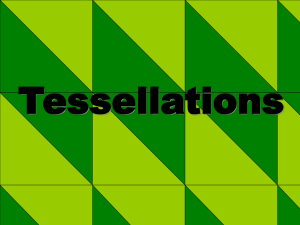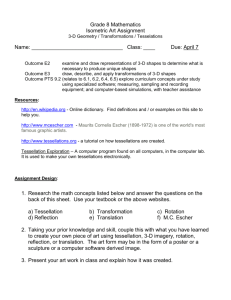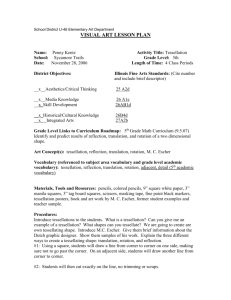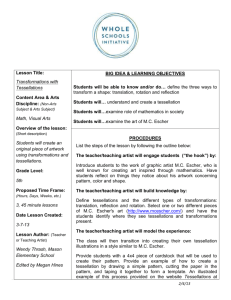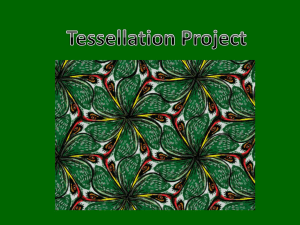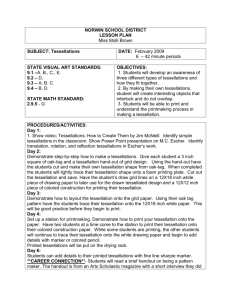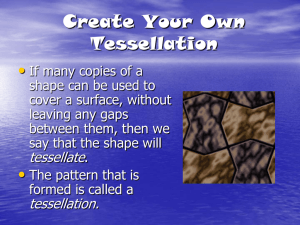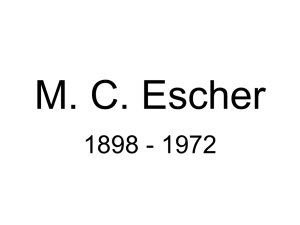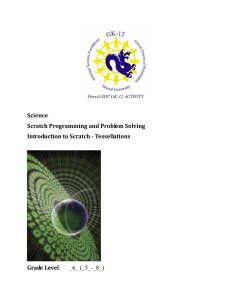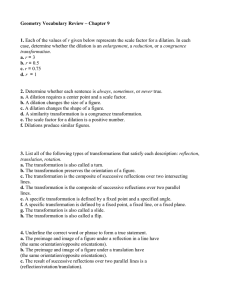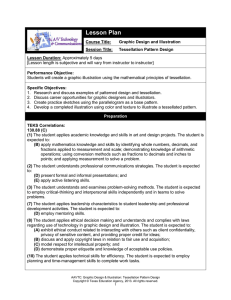Using Transformations to Create Fantastic Tessellations!
advertisement
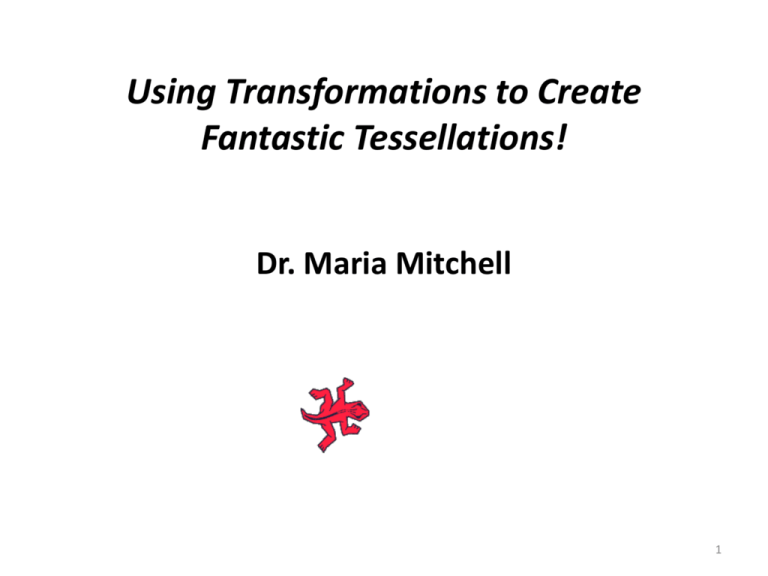
Using Transformations to Create Fantastic Tessellations! Dr. Maria Mitchell 1 What is a Tessellation? 2 What is a Tessellation? • The graphic artist M.C. Escher (1898 – 1972) was intrigued with the idea of creating a single shape that could be copied and then used to cover a surface without any gaps or overlaps. • These coverings or tilings of the plane are called TESSELLATIONS. 3 M.C. Escher 4 M.C. Escher Creations • http://www.mcescher.com/ • http://www.teachers.ash.org.au/geparker/exa mples_of_tessellations.htm 5 Explore Shapes that Tile the Plane 6 Interactive Pattern Blocks • http://www.arcytech.org/java/patterns/patterns_j.shtml 7 Moves Used to Make the Tilings 8 Transformations Translation 9 Nibbling 10 Simple Translation Tessellation Polygon should have opposite sides that are parallel and congruent. squares hexagons parallelograms 11 Transformations Reflection 12 Glide Reflection Tessellation Polygon should have opposite sides that are parallel and congruent. squares hexagons parallelograms 13 Transformations Rotation 14 Rotational Tessellation Adjacent sides must be congruent. squares triangles hexagons parallelograms 15 Now You Can Make Your Electronic Tessellation Using Pattern Blocks • http://www.arcytech.org/java/patterns/patterns_j.shtml 16 Now You Can Make Your Electronic Tessellation Using Microsoft Paint http://www.teachers.ash.org.au/geparker/creating_a_basic_tessellation_using_microso ft_paintbrush.htm 17
